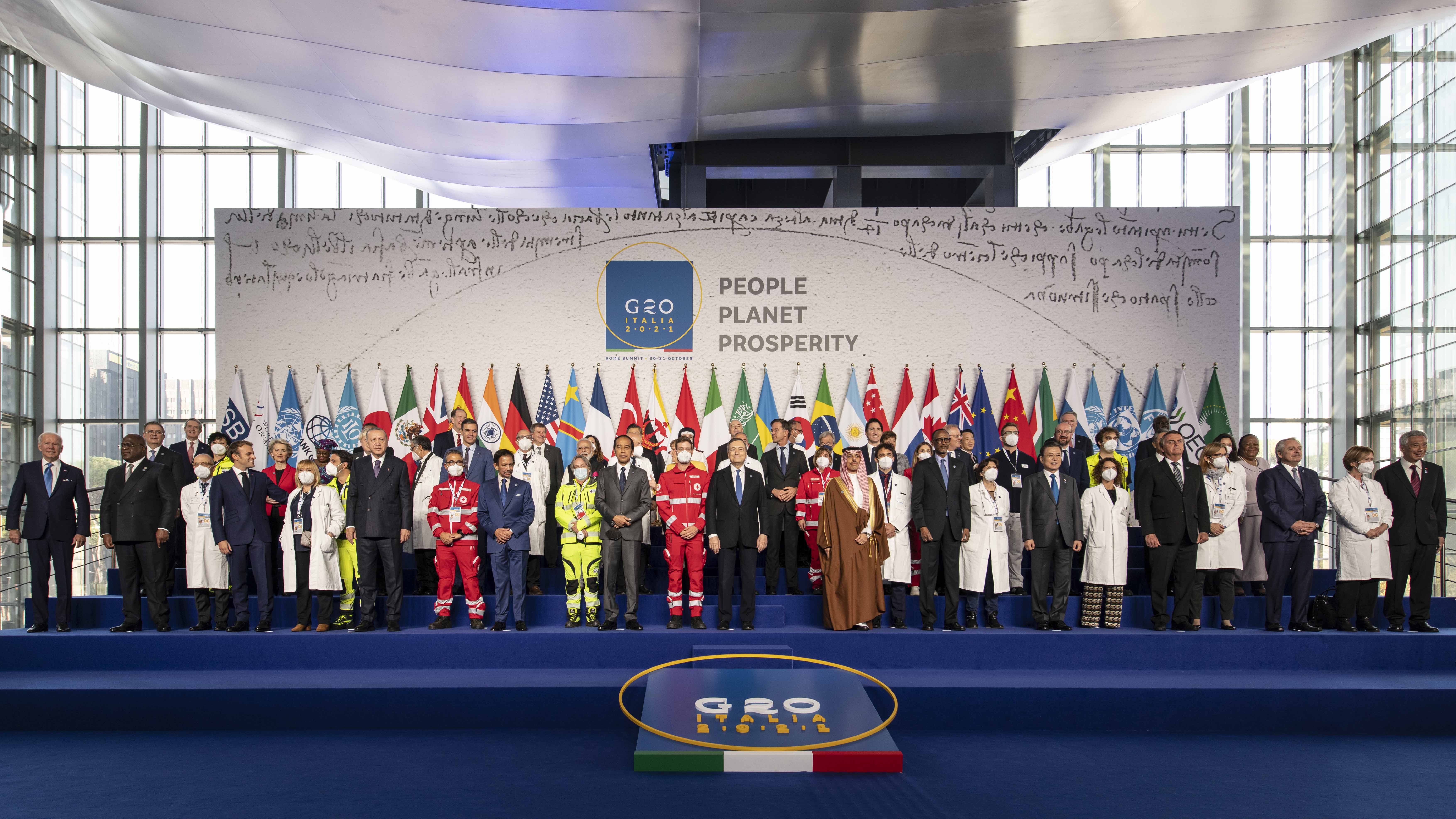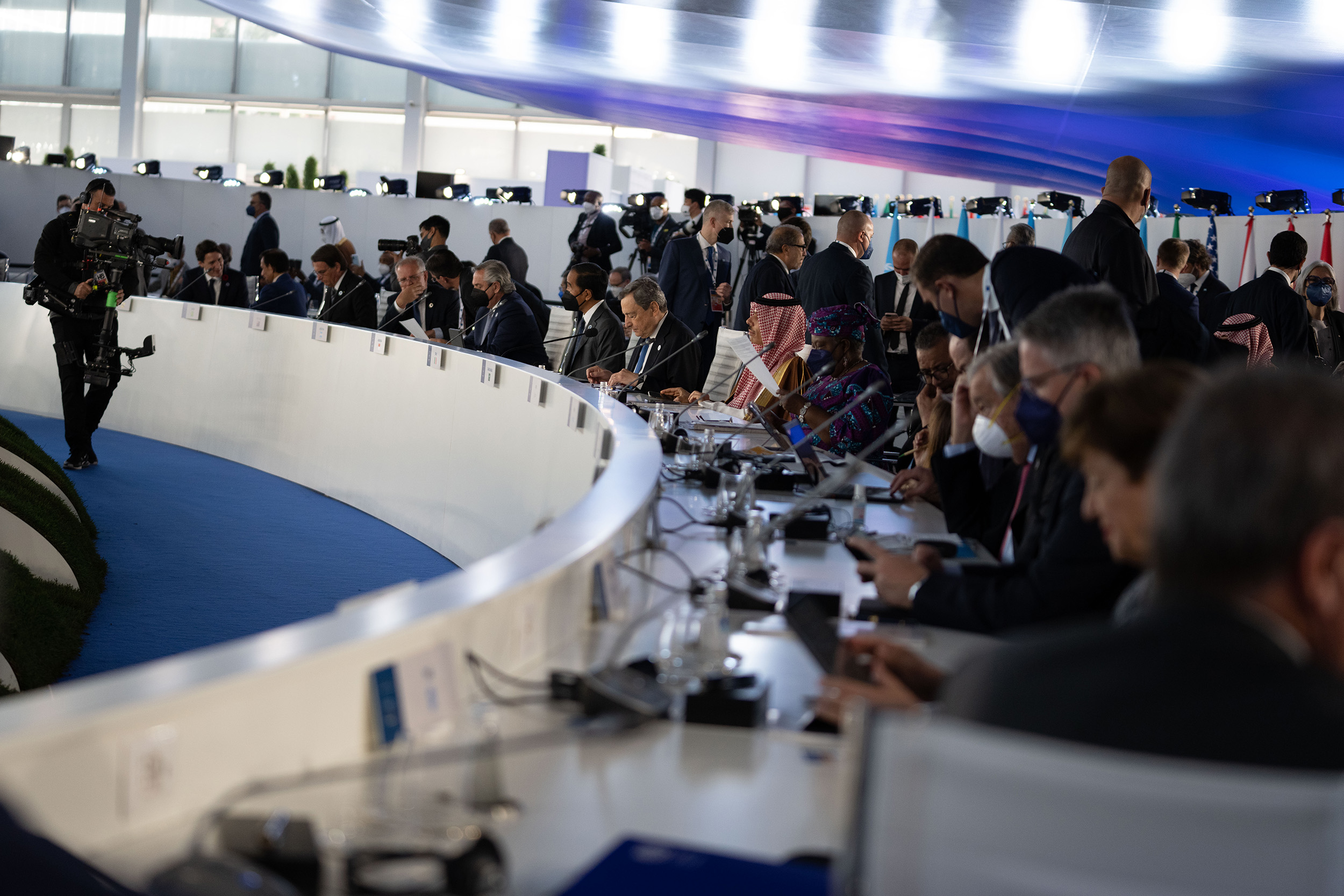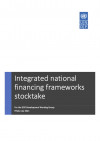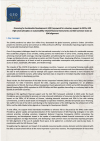Covid-19 claimed the lives of millions. It also catalysed a
global economic recession that pushed many more millions into extreme poverty. Developing
countries suffered the most. The pandemic laid bare their vulnerabilities, increased
their financial needs, and placed pressure on the resources available to combat
the resultant socio-economic devastation.
Now more than ever, actors across society must come together
to overcome these shocks to poverty, hunger, health and inequality. Under the
G20 Italian Presidency last year, with its focus on “People, Planet and
Prosperity”, the world’s 20 largest economies recommitted to achieving
the Sustainable Development Goals (SDGs) - the world’s shared blueprint for
inclusive and sustainable growth – and endorsed integrated national financing
frameworks (INFFs) as central to financing them at the country level.
What is the G20?
The G20 brings together the world’s major economies. Collectively,
they account for more than 80% of world GDP. Annual priorities are set by the
Presidency, which rotates between member states each year. Through different
thematic working groups, the G20 discusses the most pressing global issues and builds
consensus on ways forward.
The
Development Working Group (DWG) is tasked with implementing the G20
Development Agenda and is the custodian of the G20 2030 Action Plan for
Sustainable Development. “One of our main priorities within
the DWG this year was to promote not
only the enhanced mobilisation of all sources of finance but to strengthen their alignment and impact with the SDGs at country-level through a
new generation of national development plans,” said Ambassador Marco Ricci,
Chair of the G20 Italian DWG team. “Through this work, we aimed to raise
awareness about the relevance of the INFFs in developing countries among G20
members and encourage more active support for INFFs.” The DWG’s agenda closely
complemented the work under G20’s Finance Track, a forum where the finance ministers
and central bank governors of member countries meet to discuss economic, fiscal
and monetary issues. (For a full list of the reports produced by the DWG in 2021, click here.)
Each year, the discussions and debates culminate in the
meeting of G20 presidents and prime ministers at the Leaders’ Summit. Last
year’s summit was held at the end of October in the Italian capital.

G20 leaders met in Rome on 30-31 October 2022 to discuss some of the world’s most pressing challenges. Source: Massimiliano De Giorgi/Italian Government.
The road to Rome was paved with hard work
INFFs
were already recognised as a tool for mobilising and directing development
finance to support national development
strategies in 2020 under the G20 Saudi Arabian Presidency. By 2021, INFFs
were firmly elevated in the G20 political agenda on development. “We wanted to build
on the momentum from Saudi Arabia,” said Ambassador Ricci. “We saw INFFs as a
pragmatic approach for assisting countries in an inclusive, sustainable and
resilient post-Covid-19 recovery.”
The
DWG team recognised the effectiveness of the INFF approach in strengthening links between medium-term development plans and financing strategies. They
also understood that INFF uptake would benefit from the political backing and
support of the G20.
At the start of the year, the DWG commissioned UNDP’s Sustainable Finance
Hub to carry out a stocktake of progress made to date, looking at three crucial
aspects: country ownership, impact and alignment. The Sustainable Finance Hub
drew insights from UNDP’s annual INFF survey, consultations with G20 members
and case studies from eight countries developing an INFF.
In 2019, 16 countries committed to pioneer an INFF. By 2021, that number grew to more than 70.
Marcos Neto, Director, UNDP Sustainable Finance Hub
At the June 2021 development ministers’ meeting in Matera,
Italy, G20 development ministers committed to work
with international organisations and public and private stakeholders to support
the implementation of INFFs. Building on the UNDP progress update and
the work of the Financing for Sustainable Development Thematic Working Group, DWG
members shaped five recommendations to guide individual and collective support
to countries developing an INFF. These recommendations formed the basis of the voluntary
framework of support for INFFs agreed on by all G20 members:
- Promote knowledge exchange, technical assistance
and training for INFFs;
- Align international support for country-led
INFFs;
- Engage G20 member domestic constituencies to
support country-led INFFs;
- Prioritise the integration of economic, social
and environmental sustainability within INFFs; and
- Review progress on INFFs and continue to build
awareness.
When in Rome
At the Leaders’ Summit in Rome, the G20 officially endorsed the framework within the Leaders’ Declaration and called for further cooperation between G20 development and finance ministers. This marked a significant step forward for global support of INFFs: the Leaders’ Declaration sets a de facto agenda for collective action in the year to come.
“The G20 declaration sends a clear message to the international
community that G20 members place great value on these country-led financing
frameworks,” said Marcos Neto, Director of UNDP’s Sustainable Finance Hub. Although
not a magic wand, Mr Neto sees INFFs as a key ingredient in financing recovery
from Covid-19 and regaining lost ground on the SDGs.
International support for INFFs is growing. In 2021, UNDP,
UN-DESA and the OECD established an INFF Facility, which will formally launch in
the first quarter of 2022, with support from the European Commission, Italy and
Sweden. The G20 framework for supporting INFF development will go a long way towards
building on this momentum.
“We are confident that this framework will encourage other
G20 members to step forward and align their support for development financing
with the priorities that countries set out in their INFFs,” said Ambassador Ricci.

Tour de table of the first working session at the G20 Leaders’ Summit in Rome. Source: Massimiliano De Giorgi/Italian Government.
Recover together, recover stronger
This is the theme of the 2022 G20 presidency with Indonesia
at the helm. As a lower middle-income country, Indonesia’s presidency is a
departure from G20 presidencies of the past. A country comprised of thousands
of islands at risk from climate change, Indonesia is crucially aware of the
importance of sustainable development.
“As an emerging economy, Indonesia
understands the challenges of mobilising development finance,” said Raden
Siliwanti, Chair of the Indonesian DWG team and Director of Multilateral
Funding Cooperation at the Ministry of National Development Planning/Bappenas. “The
country is seizing this unique position as an opportunity to represent the
voices of developing countries on the world stage.”
The island nation is already a leader in innovative
financing. Indonesia was the first country in the world to issue a sovereign
Green Sukuk, an Islamic bond designed to finance green investments, and has
recently issued its first SDG bond.
We want our experience with the INFF to inform our G20 leadership."
Raden Siliwanti, Chair of the Indonesian DWG team
But the economic
impacts of the pandemic significantly increased the cost of achieving the SDGs.
Like many emerging economies, the pandemic took a toll. Indonesia slid
from upper-middle income to lower-middle income status as the economic
shockwaves of the pandemic rippled through the country.
“Our
development finance architecture must be scaled up to reach the last mile,”
said Ms Siliwanti. “Public resources will
not be sufficient to meet investment needs. For developing countries with constraints
on domestic public resources, private capital will be critical.”
As the first G20 member developing an INFF, Indonesia is uniquely
positioned to ramp up support for the INFFs worldwide over the course of the
year. “The experiential knowledge we have of the INFF process and the clear
demonstrated value within government is a big motivator,” said Ms Siliwanti.
The country is working together with partners like UNDP and the
European Union on assessments that will support the development of an
integrated financing strategy - the
first of its kind for the country. The strategy will support the financing of
the country’s medium-term development plan and the SDG Roadmap.
“With our
financing strategy, we want to demystify the financing instruments at our
disposal to bridge this gap,” said Ms Siliwanti.
The government
is particularly focused on leveraging blended financing instruments to fund
sustainable development projects. This focus will carry over to the work of the
DWG. “We want our experience with the INFF to inform our G20 leadership,” said Ms Siliwanti. “The lessons
from the 2022 INFF stocktake will create a foundation for the blended finance
principles and guidance we will be formulating later this year.”
As countries begin to recover (in Indonesia, the economy is
projected to grow by more than 5% in 2022), Ms Siliwanti is hopeful that the
work of the DWG will set the course of development outcomes for years to come:
“From our position as both an INFF adopter and the holder of the G20
Presidency, we view INFF as a catalytic approach to financing a better future
after Covid-19. We are excited to see the INFF momentum grow in 2022.”
![]()



